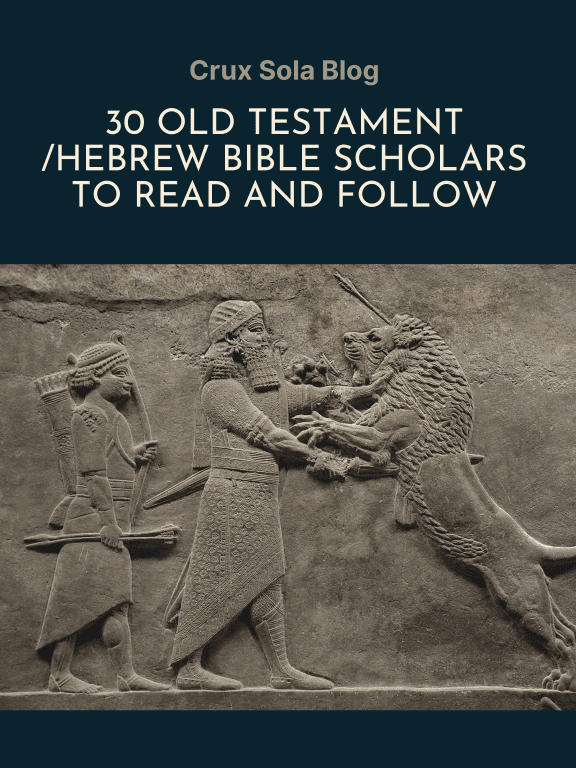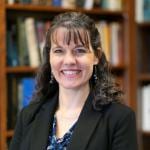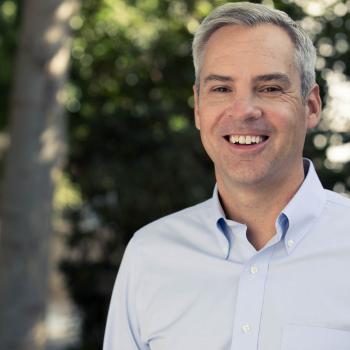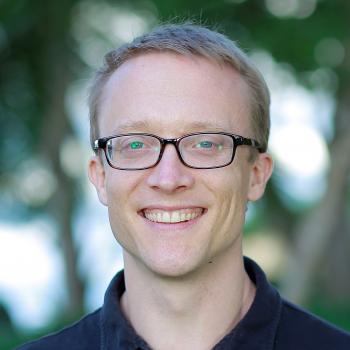I know Dan Hawk very well; in fact I used to go to church with Dan, I served on faculty with Dan briefly, and I took a course from him when I was a summer student at Ashland Seminary! If you don’t know his work, grab one of his books and have a read. His work is fresh and stimulating and he writes on really important topics.

L. Daniel Hawk, Professor of Old Testament and Hebrew, Ashland Theological Seminary

Why do you love teaching and researching about the OT/HB?
I have the privilege of introducing students to some of the most provocative, incisive, sophisticated, beautiful, mind-blowing literary texts ever written. Students enter my classes with varying degrees of familiarity with the content of the Old Testament and sometimes with strong opinions about what they think it says. I have the opportunity to show them that the Old Testament is far richer, more relevant, and more revelatory than they have imagined. The Old Testament portrays what faith in God looks like in a messy world, where it is sometimes difficult to discern what God is doing, and where clear-cut answers of right and wrong are not always apparent. When read carefully, the Old Testament presents lived faith in all its complexity, often raising more questions than it answers. I love teaching students to read the Old Testament with new eyes and seeing the difference it makes for their personal formation and ministry. And I get paid to do it! It doesn’t get any better than that.
I am of the opinion that the Church, in this present time, has great need of leaders who know how to read Scripture critically, carefully, and faithfully, and who can teach others to do so. This must include new paradigms and approaches that help Christians think in new biblical ways in response to new questions. It requires an exegetical method that is more art than science. And it requires reading Scripture in conversation with faithful readers who think, read, and experience Scripture differently from each other. I like to think that what I teach and write contributes to these practices.
What is one “big idea” in your scholarship?
Much of my scholarship has been devoted to the narrative literature of the Old Testament and to the study of narrative in general. I’m especially drawn to the ways that biblical narratives construct and contest core ideas of who the covenant people are or are to be. In light of this, I argue that the Hebrew Bible is profoundly concerned with matters of ethnicity, gender, and social class, and with the hierarchies of power and the practices of violence that emanate from them. I hold that biblical narratives convey a vision that speaks the truth about who God is and who we are in relationship with God, over against the myriad social, cultural, and political narratives that claim ultimacy and vie to define us. In particular, I’ve explored the ways that biblical narratives can interpret contemporary nationalist and imperialist narratives, for example, how the book of Joshua illumines and challenges the symbols, sentiments, and beliefs that configure American national mythology.
Who is one of your academic heroes and why do you admire them?
I’m going to cheat and chose two for similar reasons: Walter Brueggemann and Terence Fretheim. Both scholars have, with different nuances, pressed the relational character of the God portrayed in the Bible and have elaborated the wide-ranging implications of this insight for biblical theology. I admire their work not only for its scope, depth, and penetrating originality, but also for its deep relevance to the Church as it navigates turbulent cultural waters. They are both exceptional preachers and teachers, and I know them to be genuinely gracious people of faith.
What books were formative for you when you were a student? Why were they so important and shaping?

Robert Alter, The Art of Biblical Narrative, converted me from a thoroughgoing historical-critic to a lover of the elegant artistry of the Hebrew Bible. I had been an actor prior to responding to a call to seminary, and in Alter’s graceful discussion of Hebrew narrative, I discovered a way of reading that thrilled me.
David Gunn, The Fate of King Saul, pressed beyond Alter’s tidy literary reading and introduced me to the ragged character of Hebrew narrative, its fondness for gaps, ambiguities, and slipperiness. David later directed my dissertation at Emory University and gave generously of his time and of himself; his example, encouragement, and advocacy were crucial in my development as a scholar.
Joshua in 3-D: A Commentary on Biblical Conquest and Manifest Destiny (Cascade Books, 2010)
The Violence of the Biblical God, Eerdmans, 2019
Follow Hawk Online
If you ran into me at SBL, and you didn’t want to talk about OT/HB studies, what would you want to talk about?
I would probably inquire about your musical tastes and, especially if they include rock and blues, we’d have a lot to talk about; I’m the son, husband, and father of musicians and once played keyboard for a working band. I enjoy kayaking, biking, and hiking with my wife and friends, and love good conversation with good friends over good food and choice libations.
What is a research/writing project you are working on right now that you are excited about?
I’m putting the finishing touches on a devotional book that comprises reflections on the topic of justice, which will be published in print and on an online platform.














